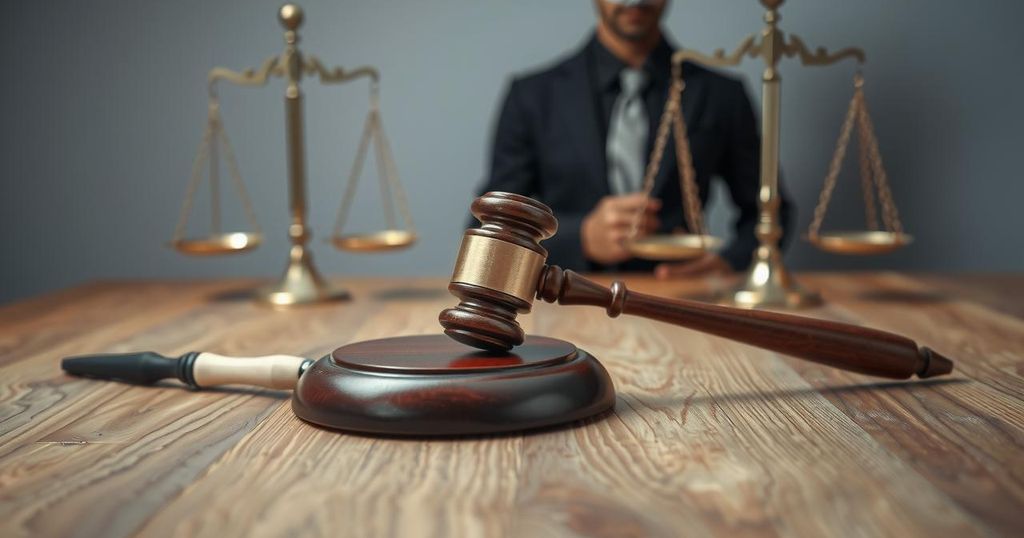Duduzile Zuma-Sambudla, daughter of former South African President Jacob Zuma, faces charges related to her alleged involvement in the July 2021 riots that resulted in over 300 deaths. Scheduled to appear in court, her social media activity during the unrest has drawn scrutiny. The riots, linked to political tensions surrounding her father’s jailing, have had lasting effects on South Africa’s political landscape and civil society.
Duduzile Zuma-Sambudla, the daughter of former South African President Jacob Zuma, is set to face charges related to her alleged role in the deadly July 2021 riots that resulted in over 300 fatalities. The situation spiraled out of control in Durban and extended to Gauteng, ignited by public protests against her father’s imprisonment. Her political involvement with the uMkhonto WeSizwe (MK) party complicates her position, as she reportedly incited violence through social media posts, exacerbating civil unrest.
Zuma-Sambudla’s impending court appearance has been scheduled for Thursday in Durban, with her party urging supporters to attend in large numbers. Although she has not publicly responded to the charges, a cryptic message on social media indicated her awareness and defiance against the accusations. She has previously drawn attention during the unrest with provocative content shared on X, expressing solidarity with the rioters.
Following her father’s resignation under a cloud of corruption allegations in 2018, Zuma-Sambudla found herself increasingly embroiled in discussions surrounding the 2021 riots, which are regarded as one of the most tumultuous periods in post-apartheid South Africa. Despite prior assurances from the Hawks police unit that she was not under direct investigation, statements from various sources implicating her have raised suspicion and scrutiny.
As the riots unfolded, Zuma-Sambudla frequently utilized phrases on social media to signal her presence and message, including the phrase “KZN, we see you,” which she repeated throughout the violent events. Previous claims by her of not fearing intimidation indicate her steadfastness in facing the charges. As noted by the Jacob Zuma Foundation, the former president’s family perceives these allegations as part of a broader targeting strategy.
A 2022 report from the South African Human Rights Commission characterized the riots as a “carefully orchestrated event” but did not establish a direct link to Jacob Zuma’s arrest. Amidst ongoing investigations, notable figures related to the riots have begun to face repercussions, including a former security guard who was sentenced to twelve years in prison. President Cyril Ramaphosa labeled the violence an “attempted insurrection,” as it led to extensive property damage and significant job losses in South Africa.
In the aftermath of these events, Zuma’s MK party emerged as a significant political force, capturing 15% of the vote in recent elections and establishing itself as the third largest party in the country. This political shift highlights the ongoing implications of the riots and the continuing legacy of Jacob Zuma’s presidency.
The July 2021 riots in South Africa erupted following the imprisonment of former President Jacob Zuma for contempt of court. The riots marked a significant moment in recent South African history, considering they were fueled by political tensions, ethnic affiliations, and public sentiment toward the controversial leadership of Zuma. Specifically, his daughter, Duduzile Zuma-Sambudla, has been accused of supporting the unrest through social media, bringing attention to both her political affiliations and the broader consequences of the civil disorder instigated during her father’s judicial conflicts. The aftermath of the riots resulted in substantial harm to businesses and communities, underscoring the political instability in the nation.
Duduzile Zuma-Sambudla’s forthcoming court case symbolizes the deep political divisions and unrest within South Africa that stemmed from her father’s turbulent presidency. As a key figure in the uMkhonto WeSizwe party, her actions have provoked significant public discourse regarding accountability and political justice in the context of the 2021 riots. The allegations against her not only reflect on her personal conduct but also connect to broader themes of authority and the socio-political landscape in a post-apartheid South Africa.
Original Source: www.bbc.com






